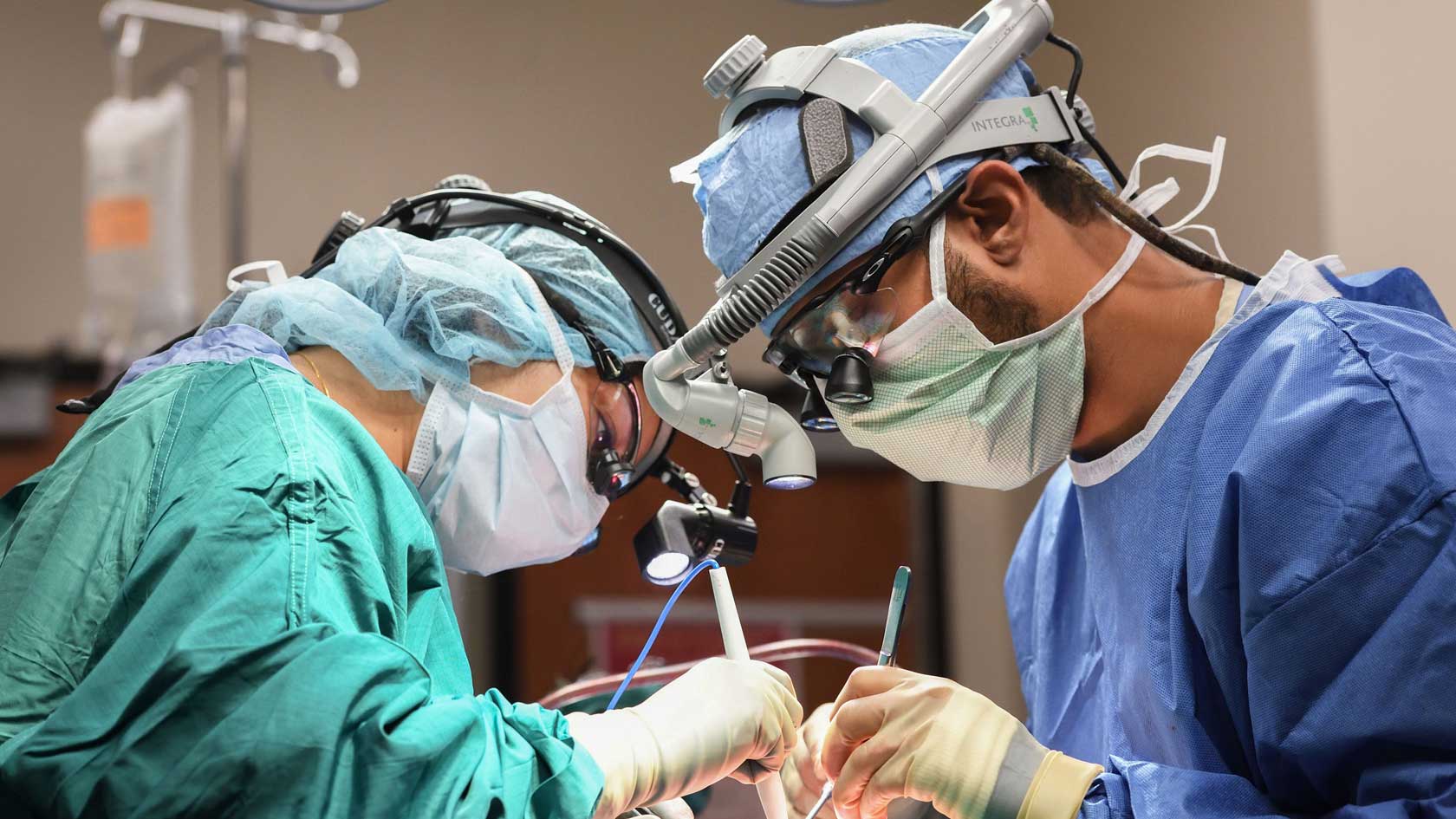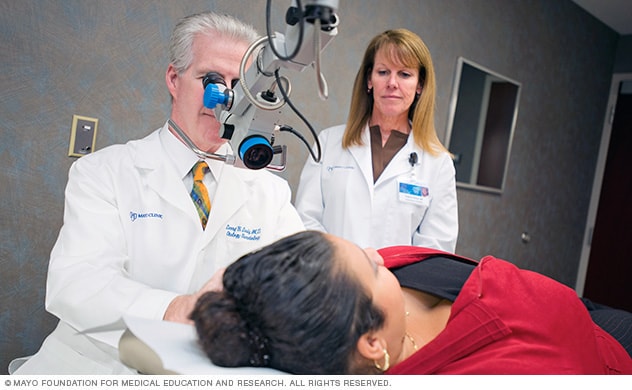In-Depth Look at Otolaryngology and Its Role in Treating Hearing Disorders
In-Depth Look at Otolaryngology and Its Role in Treating Hearing Disorders
Blog Article
Checking out the Field of Otolaryngology: What to Anticipate When You Seek Advice From an ENT
Otolaryngology, typically referred to as ENT, includes the diagnosis and therapy of throat, nose, and ear problems. For those experiencing related issues, consulting an ENT specialist can provide quality and alleviation. Comprehending what to expect during such consultations is crucial for efficient interaction and care. This overview will certainly outline key elements of the ENT experience, including typical factors for visits and the procedures associated with diagnosis and treatment.

Recognizing Otolaryngology: An Introduction
Otolaryngology, usually described as ENT (Throat, ear, and nose) medication, is a specific branch of medication that concentrates on the diagnosis and therapy of problems affecting these vital areas of the body. This field includes a large range of problems, consisting of those related to hearing, equilibrium, respiratory function, and speech. Otolaryngologists are trained to take care of both medical and clinical treatments, using innovative techniques and technologies. Their knowledge prolongs beyond standard ailments, dealing with problems such as allergies, sinus infections, and hearing loss. Additionally, they play a vital duty in the monitoring of head and neck cancers cells, supplying comprehensive care customized to specific person requirements. In general, otolaryngology continues to be necessary for maintaining health and lifestyle in afflicted individuals.
Usual Reasons to See an ENT Expert
Numerous people look for the expertise of an ENT professional for a selection of factors, showing the diverse nature of problems that affect the nose, ear, and throat. Usual problems include chronic sinus problems, which typically causes consistent nasal blockage and facial discomfort. Allergies and their linked symptoms, such as itching and sneezing, also prompt visits to these professionals (Otorrinolaringologia). Hearing loss, whether abrupt or progressive, is one more substantial reason for assessment. Furthermore, people might seek analysis for throat problems, including relentless hoarseness or ingesting problems. Rest apnea, defined by disturbed breathing throughout sleep, is regularly addressed by ENT experts also. Each of these problems highlights the significance of specialized treatment in managing complicated ENT-related health problems
Preparing for Your ENT Visit
When planning for an ENT visit, it is vital to collect appropriate details and think about any particular concerns. Individuals should assemble an in-depth case history, consisting of previous ear, nose, or throat problems, surgical procedures, and present drugs. Documenting signs-- such as period, severity, and frequency-- can offer useful understandings for the ENT professional. In addition, people need to prepare a checklist of questions they wish to ask, ensuring that all problems are resolved throughout the go to. Bringing along any kind of pertinent clinical documents or test results can additionally assist the ENT in comprehending the individual's condition. Ultimately, clients ought to verify their appointment information, consisting of area, time, and date, to decrease any kind of last-minute complication. Proper prep work can boost the efficiency of the assessment and result in far better end results.
What to Expect During the Consultation
As the appointment begins, the patient can anticipate to take part in a detailed conversation with the ENT specialist about their signs and case history. The expert will ask about the period, frequency, and severity of signs such as hearing loss, nasal congestion, or sore throat. Furthermore, the patient's previous clinical conditions, medicines, and any relevant family background will be assessed, helping the professional in forming a full understanding of the individual's health. The ENT might also ask regarding way of life elements, such as direct exposure to toxic irritants or allergens. This open discussion establishes a structure for the examination, ensuring that the client's problems are dealt with and establishing the phase directory for any required examinations or suggestions for therapy.
Diagnostic Tests and Treatments in Otolaryngology
A range of diagnostic examinations and treatments are important in otolaryngology to properly examine and identify conditions influencing the throat, ear, and nose. Common examinations consist of audiometry, which gauges hearing feature, and tympanometry, analyzing center ear pressure. Nasal endoscopy enables visualization of the nasal flows and sinuses, while laryngoscopy takes a look at the throat and vocal cords. Imaging methods, such as CT scans and MRIs, supply comprehensive views of head and neck frameworks. Allergic reaction screening might additionally be conducted to identify triggers for sinus or respiratory concerns. These analysis tools enable ENT experts to establish a complete understanding of clients' conditions, guaranteeing tailored and reliable management plans. Correct medical diagnosis is essential for successful therapy results in otolaryngology.
Treatment Choices Provided by ENT Specialists
ENT specialists provide a range of therapy options customized to attend to details problems influencing the ear, throat, and nose. These therapies vary from conventional methods, such as medication and way of living alterations, to even more intrusive procedures. For circumstances, allergic reactions may be managed with antihistamines or immunotherapy, while persistent sinus problems may call for nasal corticosteroids or sinus surgery. For hearing loss, ENT experts typically recommend listening device or surgical interventions like cochlear implants. In cases of throat problems, choices can include speech treatment or medical treatments to eliminate obstructions. Furthermore, they may give advice for managing rest apnea, including the usage of CPAP gadgets or surgical interventions. Overall, the goal is to boost individuals' lifestyle with personalized care and effective therapy strategies.
When to Seek Follow-Up Care With an ENT
When to look for follow-up treatment with an ENT expert is vital for taking care of continuous symptoms or problems connected to throat, ear, and nose problems, recognizing. Clients must think about arranging a follow-up visit if signs continue despite preliminary treatment, such as chronic ear pain, nasal congestion, or throat pain. Changes in hearing, balance problems, or unusual nasal discharge might likewise require further analysis. In addition, if a client experiences side results from prescribed medicines or has actually undertaken a procedure, follow-up care is very important to keep an eye on healing and address any kind of worries. Timely appointments can ensure efficient management of problems, stop possible complications, and give satisfaction concerning one's wellness. Seeking follow-up care promotes aggressive health administration in otolaryngology.
Frequently Asked Inquiries

What Qualifications Should I Look for in an ENT Expert?
When seeking an ENT professional, one must seek board certification, appropriate experience, and strong patient reviews. In addition, effective communication skills and a caring strategy can greatly boost the general therapy experience.
Exactly how Do I Choose the Right ENT for My Demands?
Choosing the best ENT specialist entails reviewing their credentials, experience, and client evaluations (Otolaryngology). It is vital to contemplate their communication style and method to therapy, ensuring they straighten with the person's certain wellness requirements and choices
Exist Any Threats Related To ENT Procedures?
The risks connected with ENT procedures may consist of infection, bleeding, anesthesia difficulties, and potential damage to bordering frameworks. Clients must go over these dangers with their doctor to comprehend private concerns and guarantee informed great site decisions.
Just How Can I Manage Stress And Anxiety Before My ENT Appointment?
To take care of stress and anxiety prior to a consultation, individuals can exercise deep breathing workouts, visualize positive end results, prepare concerns ahead of time, and seek assistance from good friends or family, fostering a feeling of reassurance and calmness.
What Should I Do if I Experience Negative Effects From Therapy?
If side impacts from therapy take place, the person must without delay report them to their medical care copyright. Adjustments to treatment or added interventions might be required to guarantee safety and security and performance in managing their problem - ENT Doctor. As the examination starts, the patient can expect to engage in a detailed discussion with the ENT specialist concerning their signs and medical background. These diagnostic tools make it possible for ENT professionals to establish a thorough understanding of patients' conditions, making sure tailored and efficient administration plans. ENT experts use a selection of therapy alternatives customized to deal with certain problems affecting the nose, ear, and throat. When looking for an ENT professional, one original site ought to look for board qualification, appropriate experience, and strong client reviews. Choosing the right ENT expert entails examining their certifications, experience, and client reviews
Report this page